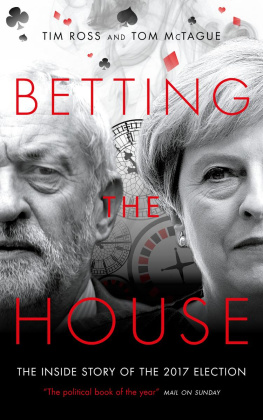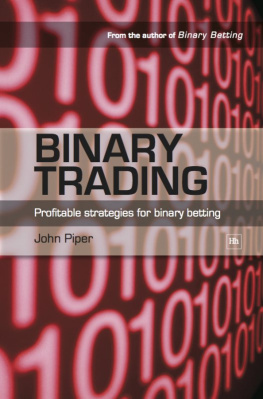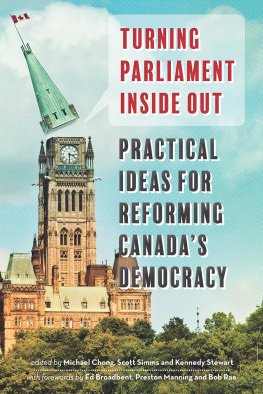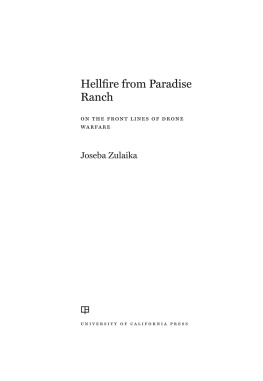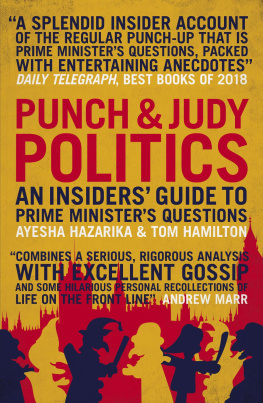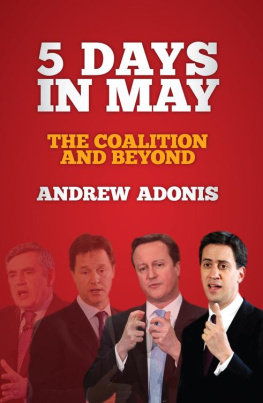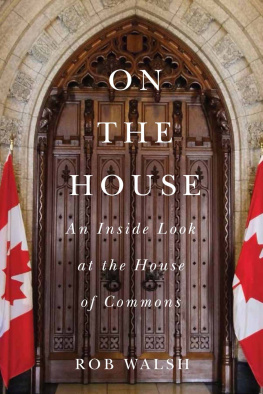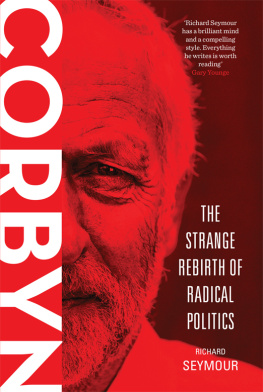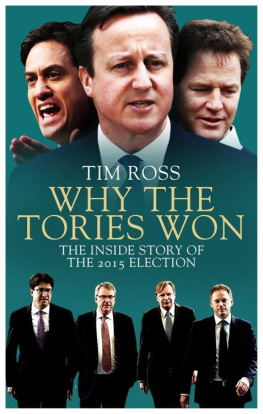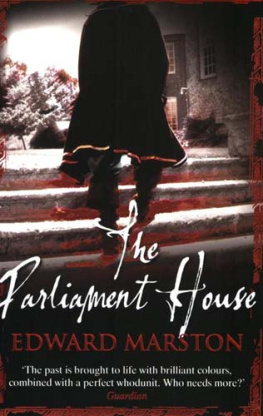Great Britain. Parliament - Betting the house: the inside story of the 2017 election
Here you can read online Great Britain. Parliament - Betting the house: the inside story of the 2017 election full text of the book (entire story) in english for free. Download pdf and epub, get meaning, cover and reviews about this ebook. City: Great Britain, year: 2017, publisher: Biteback Publishing, genre: Politics. Description of the work, (preface) as well as reviews are available. Best literature library LitArk.com created for fans of good reading and offers a wide selection of genres:
Romance novel
Science fiction
Adventure
Detective
Science
History
Home and family
Prose
Art
Politics
Computer
Non-fiction
Religion
Business
Children
Humor
Choose a favorite category and find really read worthwhile books. Enjoy immersion in the world of imagination, feel the emotions of the characters or learn something new for yourself, make an fascinating discovery.
- Book:Betting the house: the inside story of the 2017 election
- Author:
- Publisher:Biteback Publishing
- Genre:
- Year:2017
- City:Great Britain
- Rating:5 / 5
- Favourites:Add to favourites
- Your mark:
- 100
- 1
- 2
- 3
- 4
- 5
Betting the house: the inside story of the 2017 election: summary, description and annotation
We offer to read an annotation, description, summary or preface (depends on what the author of the book "Betting the house: the inside story of the 2017 election" wrote himself). If you haven't found the necessary information about the book — write in the comments, we will try to find it.
Betting the house: the inside story of the 2017 election — read online for free the complete book (whole text) full work
Below is the text of the book, divided by pages. System saving the place of the last page read, allows you to conveniently read the book "Betting the house: the inside story of the 2017 election" online for free, without having to search again every time where you left off. Put a bookmark, and you can go to the page where you finished reading at any time.
Font size:
Interval:
Bookmark:
T his book was a huge logistical challenge that would have been impossible without the goodwill, hard work and generosity of many people. The authors would like to thank the team at Biteback for their patience and hard work especially Iain Dale, James Stephens, Olivia Beattie and Bernadette Marron. The expertise of Frank Prenesti and Kate Devlin was vital during the redrafting process. Thanks also to Simon Walters, Glen Owen and Brendan Carlin at the Mail on Sunday for their work during the serialisation.
Tim Ross would like to thank: my editors and colleagues at Bloomberg, especially John Fraher, Emma Ross-Thomas, Flavia Krause-Jackson, Simon Kennedy, Heather Harris, Eddie Buckle, Alan Crawford, Robert Hutton, Thomas Penny, Svenja ODonnell, Alex Morales and Charlotte Ryan. Apologies are due to Cincinnati CC and Three Line Whip for my absences. The greatest debt by far is to my family especially my parents for their constant encouragement and invaluable insights. Thanks also to the Stockwells for ongoing help and patience with book-related demands. Most of all, I owe this book to my wife, Amy, who made numerous essential suggestions on the text, and kept two boys and a husband going for far longer than was fair.
Tom McTague would like to thank: my colleagues at Politico, particularly Matt Kaminski, who gave me the time off when he didnt have to, but also Kate Day, Charlie Cooper and Annabelle Dickson, who took the strain during a busy summer. As ever, I am grateful to my parents for their help, which this time even extended to offering their flat as a temporary work den. Most of all, however, Id like to thank my wife, Louise, and son, Leo, who have had to do without me for longer than is fair and whose support, love and understanding have kept me going. I could not have done it without you both. A final shout-out to my family and friends, particularly to Joe, Penny, Kate and Jules, to whom Ive been an absent bore; the TIGs for being missing in action; and to Dan next-door, whose creativity and generosity I wish Id tapped earlier.
Countless protagonists, including senior Cabinet ministers, shadow Cabinet ministers, MPs, campaign strategists, party officials and others who wished to remain anonymous were generous with their time and information. Without their contributions, the story told in these pages would not exist and we thank them all. Among those happy to be quoted, the authors would like to thank Jonathan Ashworth, Paul Butters, Andrew Cooper, Sir Lynton Crosby, Craig Elder, Nigel Farage, Damian Green, Ben Gummer, Andrew Gwynne, Jon Lansman, Andrew Marr, Jim Messina, Katie Perrior, Niall Sookoo, Will Tanner, Sam Tarry, Nick Timothy and Chris Wilkins.
A t 4.30 a.m. on election night, Theresa May arrived back at Conservative headquarters with the country in chaos. Ministers were losing their seats. Labour was running rampant. The pound was in freefall.
She hurried past the party workers slumped in chairs in the campaign war room and into a small private office to consult her aides. Gone was her dream of reshaping Britain at the head of a landslide-winning Conservative government. In its place, one desperate thought remained: stop Labour.
We have got to make sure Jeremy Corbyn is not the Prime Minister, an emotional May blurted to her stunned team. Some around May believed she might quit, devastated by her failed campaign. But the desire to prevent a hardline socialist taking over Downing Street was motivation enough. I must stay, she said.
In the space of six and a half hours, Mays political mission had been transformed; her credibility and authority shredded, her chances of surviving the next twenty-four hours slim. Even if she did make it through to the weekend, May looked likely to be gone soon after.
As for Corbyn, when the exit poll was announced on TV at 10 p.m., he was serving vegetarian tortillas to friends at his home in Islington. They were swapping bets on Labours likely share of the vote, an election party game. These were not the actions of a man who expected to have to contemplate walking into No. 10 a few hours later.
* * *
For the third time in three years, after David Camerons majority in 2015 and the EU referendum of 2016, a national vote shocked Britain. Instead of the landslide they were hoping for and expecting, the Conservatives lost their majority altogether. May finished with just 318 seats, while Corbyns Labour Party defied the commentators and most of the pollsters to win thirty more seats than he had before, finishing with 262. The implications of the hung parliament were profound. May was forced to agree 1 billion to Northern Ireland to secure the support of the Democratic Unionist Party in a confidence and supply alliance.
Furious Tory MPs demanded the heads of Mays two powerful chiefs of staff, Nick Timothy and Fiona Hill. They were gone within hours. The Liberal Democrats Tim Farron and UKIPs Paul Nuttall also quit as leaders of their parties in the aftermath of the election. Tory leadership rivals including David Davis and Boris Johnson were rumoured to be on manoeuvres. As for May, she survived the summer and has claimed she wants to lead the Tories into the next election in 2022. After the disaster of 2017, few of her colleagues believe she will be given the chance.
Aside from the individual casualties, the political impact of the snap election was huge. May called the vote to strengthen her hand ahead of Brexit negotiations. She sought a mandate for her vision of a so-called hard Brexit but her party lost the mandate to do anything in government alone. Labour stood on an ambiguous but softer Brexit platform, promising to put jobs first and talking up the single market, and won support. Since the election, Labours backing for the EU single market and customs union has grown, and the Prime Minister has accepted that Britain will maintain a status quo transition period lasting two years. What Brexit will really mean is less clear than before.
Mays programme of social and economic reforms from reintroducing grammar schools to overhauling social care was also left in turmoil. Getting anything controversial through a hung parliament is a major undertaking, involving knife-edge votes late at night, backroom deals between party whips and rebel MPs, and concessions to awkward peers in the House of Lords. In the words of a senior Whitehall mandarin, its a mess.
* * *
This book is an attempt to understand what led Theresa May to gamble her career and the countrys future on a snap election in the spring of 2017 and why her bet backfired. How did the Conservative campaign go so badly awry given the crop of hugely experienced election consultants and political strategists who were working in the partys war room? How could a Tory machine that won a higher share of the vote than even Margaret Thatcher still lose its majority? What were the forces driving the unexpected and largely unnoticed groundswell of support for Jeremy Corbyn and his radical Labour platform? Why did none of the political parties truly see what was happening? What influence did the character of the leaders have on their campaigns? Did the surprise nature of the election change the contest? And how did two terrorist attacks affect the result?
In order to answer some of these questions, this book relies on the evidence from more than 100 interviews, emails, text messages, memos, private polling reports, target seat data lists and other material from original sources. The authors have heard from individuals involved at all levels in the campaign, from the very top of politics to party workers out canvassing on the streets during the election. Most of the sources still work in politics and have requested to speak anonymously in order to give their candid opinions and recollections. In the book, the term private interview is used to attribute quotations and information derived from formal but anonymised interviews with sources. References listed as private information relate to other material for which the confidential sources cannot be given. Reconstructions of conversations are based on accounts directly from the participants themselves, or from eye-witnesses. A number of the most senior figures involved have agreed to speak and their words are reflected in named interviews throughout the book.
Font size:
Interval:
Bookmark:
Similar books «Betting the house: the inside story of the 2017 election»
Look at similar books to Betting the house: the inside story of the 2017 election. We have selected literature similar in name and meaning in the hope of providing readers with more options to find new, interesting, not yet read works.
Discussion, reviews of the book Betting the house: the inside story of the 2017 election and just readers' own opinions. Leave your comments, write what you think about the work, its meaning or the main characters. Specify what exactly you liked and what you didn't like, and why you think so.

